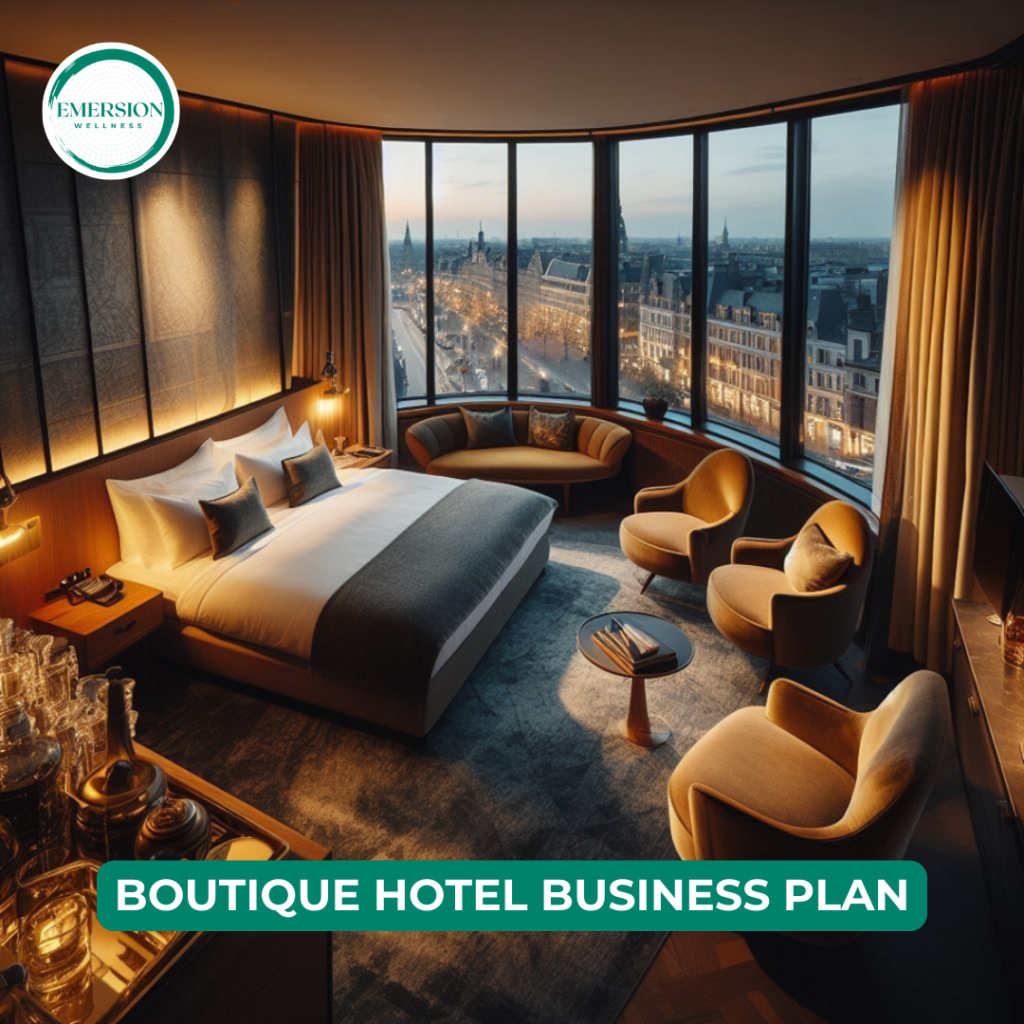Starting a boutique hotel can be an exciting and rewarding endeavor, but it requires careful planning and consideration. As you embark on this journey, remember that boutique hotels offer unique, personalized experiences. Your concept, design, amenities, and customer service should all align to create an exceptional guest stay. Follow this beginner's guide for key steps when opening a boutique hotel.
Table of Contents
Key Takeaways
- Clearly define your boutique hotel's unique concept and align all decisions, including design, location, and amenities.
- Create a detailed business plan outlining your startup costs, financial projections, management structure, and growth strategies.
- Choose a location conducive to your target guests, considering access to attractions, transportation, and neighborhood fit.
- Work with experienced designers to create customized, Instagram-worthy public spaces and luxurious rooms.
- Provide exceptional customer service by hiring the right staff, investing in training, and soliciting guest feedback.
- Integrate automation and technology to enhance efficiency and personalization for guests.
- Diligently control expenses without sacrificing quality to operate profitably.
- Remain nimble and flexible, fine-tuning concepts and offerings over time.
Define Your Boutique Hotel Business Plan
The first step is precisely crystallizing what your boutique hotel will offer. Conduct market research to identify gaps you can fill or ways to stand out. Will you cater to families, business travelers, or couples seeking a romantic retreat? Consider location and amenities that will appeal to your target guest. For example, a wine country boutique hotel may offer wine tastings and vineyard tours. Or, if near the beach, provide beach cruiser bikes and surf lessons. Your concept should inform all subsequent decisions.
Create a Boutique Hotel Business Plan
A detailed business plan is essential for opening a boutique hotel. Outline your concept, location, target market, and competitive landscape. Detail your startup costs, five-year financial projections, and expected return on investment. Having these specifics mapped out shows you've conducted due diligence and helps secure financing. You'll also describe your management structure, hiring needs, and growth strategies in the business plan. This document serves as an invaluable roadmap.
Find the Right Location For your Boutique Hotel Business Plan
Location significantly impacts a boutique hotel's success. Consider proximity to airports, attractions, restaurants, and other conveniences for travelers. Does the area align with your brand identity and concept? For example, a historic downtown may suit a boutique committed to restoring heritage architecture. Thoroughly evaluate parking availability, neighborhood safety, local ordinances, and accessibility. While tempting, avoid choosing a location purely based on low real estate prices. Ensure the area draws your target guests.

Design Standout Aesthetics
Boutique hotel design must align with your concept and differentiate you. Work with architects and interior designers to create a look and layout that wows. Select unique finishes and conversation-starting décor when designing public spaces while maintaining cohesion. Opt for high-end bath products, linens, and technology upgrades in rooms. Details like original local art, warm lighting, and statement pieces elevate the experience. But remember, the form must follow a function regarding layout. Guest comfort and convenience should drive all aesthetic choices.
Offer Exceptional Service
For boutique hotels, customer service is as critical as location and design. Hire staff who share your hospitality mindset and passion for delighting guests. Invest in thorough training to equip them with the knowledge and skills to handle all guest needs. Empower them to personalize each stay by welcoming guests by name and providing customized recommendations. When issues arise, respond promptly and resolve them satisfactorily. Provide ongoing coaching to help staff improve, even when service is already exceptional. Prioritizing service helps boutique hotels compete with larger chains.
Integrate Technology
Technology integration enhances efficiency and guest satisfaction at boutique hotels. Install automation solutions allowing self-check-in/out via mobile apps or kiosks. Provide keyless entry to rooms. Offer state-of-the-art in-room entertainment like streaming and Bluetooth connectivity. Leverage platforms that unify reservations, property management, customer relationship management, and other systems. This consolidates data to understand guests and streamlines operations better. Also, utilize technology to gather guest feedback and monitor online reputation.
Market Your Property
Marketing and branding are necessary to generate awareness of your new boutique hotel. Create a website showcasing your concept, location, and design. Engage on social media and claim online listings to be discoverable. Consider targeted advertising to drive direct bookings.
Network with tourism boards, vendors, and corporate accounts to tap into established channels. Offer pre-opening deals, packages, and contests to create buzz. When possible, host media previews of the property. Also, encourage guests to post about their stays on social media. Consistent marketing helps fill rooms as you build a reputation.
Watch Expenses Diligently
Opening and operating a boutique hotel requires significant capital. Carefully monitor expenses and keep budgets on track during the launch phase and beyond. Review invoices for inaccuracies to avoid overpaying. Look for ways to cut costs, but not at the expense of quality. For instance, developing staff cross-training procedures decreases reliance on temp workers during peak times. Conduct regular maintenance to maximize systems' lifespan. Adjust staffing levels to align with occupancy. Controlling costs ensures stability, especially when occupancy dips.
Remain Flexible
In the boutique hotel business, the one constant is change. As the concept evolves or market dynamics shift, remain agile and willing to tweak plans. Maybe you'll refocus your target audience based on early guest data. Refreshing certain design elements every few years keeps the property feeling fresh. Expanding your food and beverage program could be worthwhile. Stay open-minded, responsive, and proactive. Adaptability helps boutique hotels outpace competitors.
Conclusion
Opening a boutique hotel is challenging but rewarding for hospitality-minded entrepreneurs. Define your passion-fueled concept, meticulously plan all aspects of the property and guest experience, and provide uniquely personalized stays. By following this beginner's guide, you'll be on the path to boutique hotel success. Let your dream hotel become a reality.
Frequently Asked Questions
-
What is a boutique hotel?
A boutique hotel is a small, intimate lodging property that provides customized services and upscale accommodations. Boutique hotels differentiate through unique concepts and designs.
-
What makes a hotel "boutique"?
Key characteristics of boutique hotels include exceptional design aesthetics, personalized service, local influence or sense of place, and amenities catering to their target guests. Most boutique hotels have 100 rooms or less.
-
How do you come up with a boutique hotel concept?
Research your target market and competitive landscape to identify unmet needs or gaps to fill. Determine how to provide a specialized experience through amenities, decor, location, packages, and service. Your concept should inform all decisions.
-
What should you include in a boutique hotel business plan?
Include your concept summary, competitive analysis, five-year financial projections, management team profiles, hiring plan, startup costs, expected ROI, and growth strategies. A business plan is critical for securing financing.
-
What makes a good boutique hotel location?
Ideal boutique hotel locations offer easy access to airports and attractions, walkable dining/shopping, and proximity to target guests. The neighborhood vibe should align with your brand identity. Consider accessibility, parking, and safety.
-
How much does it cost to start a 20-room boutique hotel?
Costs vary significantly by location and amenities. However, expect startup costs between $2-$5 million for a 20-room boutique hotel in the planning and pre-opening phase. Factor in real estate prices, construction costs, decor, staffing, and marketing.
-
What technology do boutique hotels need?
Critical technology includes mobile check-in/out, keyless entry, integrated reservation/property management systems, guest request/communication platforms, payment processing, and guest feedback channels.
-
How important is customer service at a boutique hotel?
Excellent customer service is extremely important, as personalized attention differentiates boutique hotels. Hire staff aligned with your service philosophy and invest heavily in employee training. Empower staff to customize and tailor each guest's stay.
-
What technology do boutique hotels need?
Create a website, engage on social media, leverage partnerships and tourism boards, run pre-opening promotions, host media previews, encourage guest posts and reviews, and use targeted advertising. Aim to tell your unique story.
-
How important is customer service at a boutique hotel?
Excellent customer service is extremely important, as personalized attention differentiates boutique hotels. Hire staff aligned with your service philosophy and invest heavily in employee training. Empower staff to customize and tailor each guest's stay.
-
How can you market a new boutique hotel?
Create a website, engage on social media, leverage partnerships and tourism boards, run pre-opening promotions, host media previews, encourage guest posts and reviews, and use targeted advertising. Aim to tell your unique story.
-
How can boutique hotels control costs?
Monitor budgets closely, review invoices for accuracy, negotiate vendor contracts, cut unnecessary expenses without sacrificing quality, maintain systems to maximize lifespan, develop staff cross-training, and right-size staffing levels to occupancy.
Contact Emersion Wellness to get an on-point boutique hotel business plan!
Also Read: What Are Hotel STR Reports and How Do They Contribute To Success In Hospitality Industry?

I'm Nathan Baws, a nutrition nerd, exercise and weight loss expert, and an unwavering advocate for good health. As the founder of Emersion Wellness, I'm passionate about crafting Seamless Weight Loss Programs to supercharge hotel revenue and transform lives. We've pioneered the World's First Plug & Play Weight Loss Programs for top hotels and resorts, sparking a wellness revolution. Beyond my professional journey, you'll often find me hiking, swimming, and riding the waves, embracing every moment in nature. Join me on this exhilarating journey towards diet, health and wellness.

